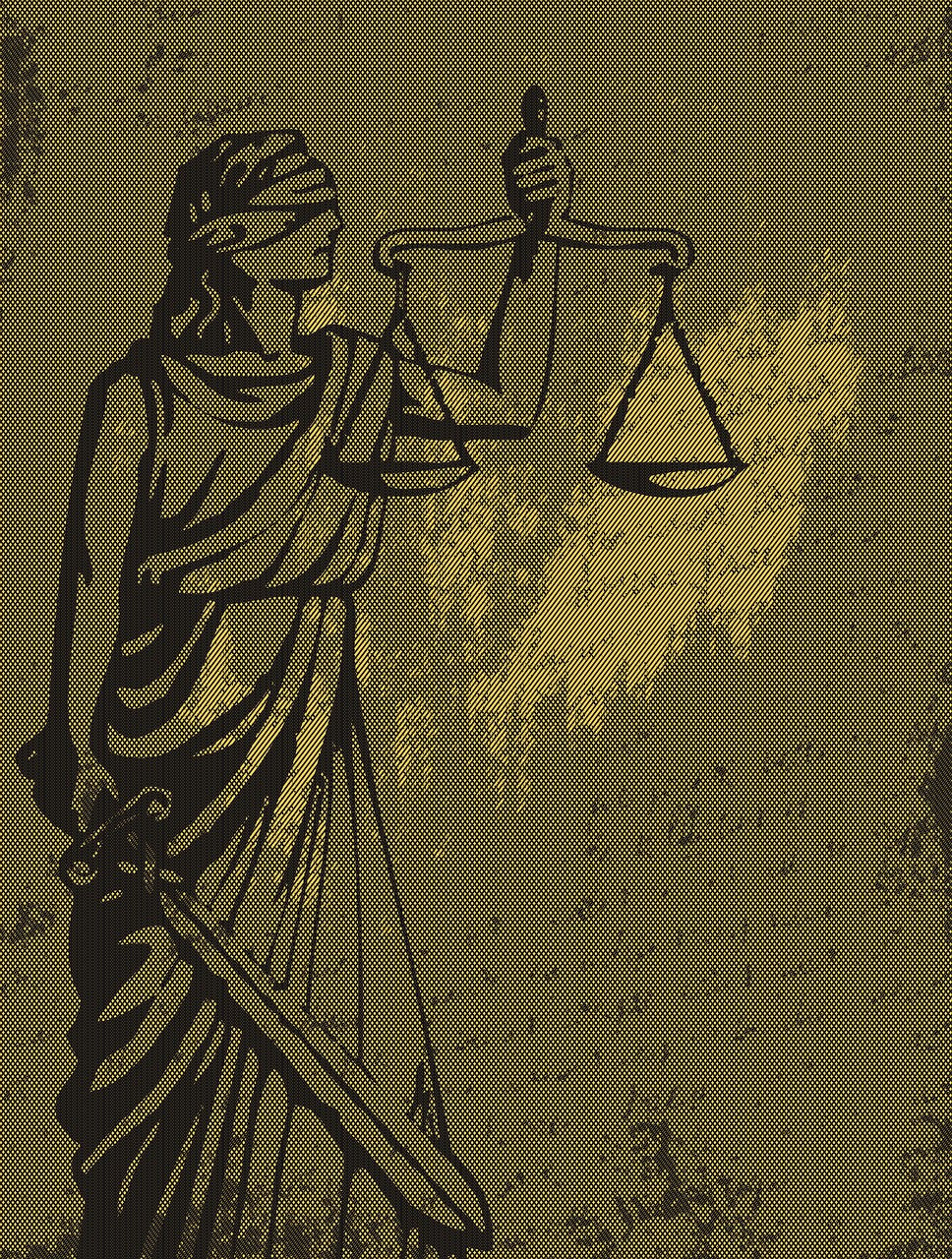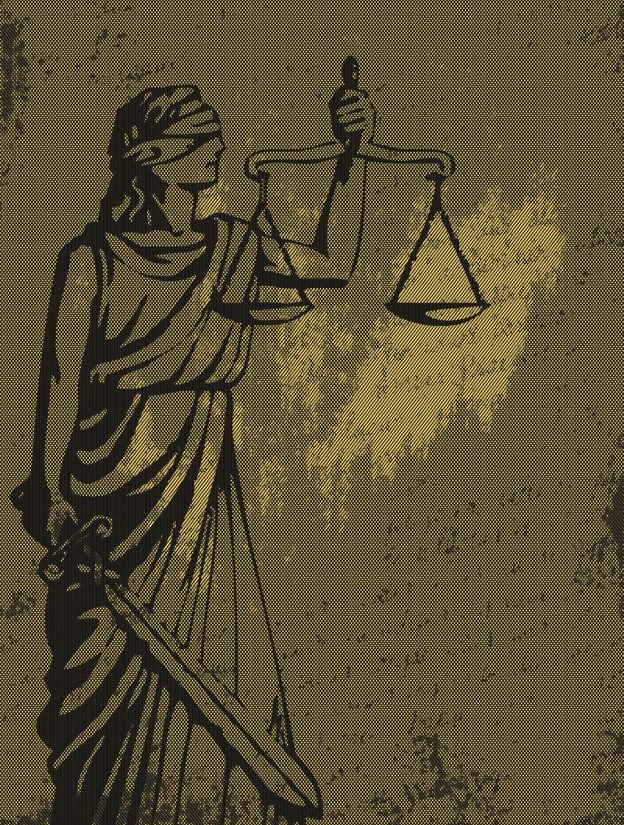In the world of criminal law, having a skilled advocate by your side can make all the difference. When facing criminal charges, individuals often feel overwhelmed and unsure of how to navigate the complexities of the legal system. That’s where the Criminal Defense Advocate comes in. With a deep understanding of the challenges individuals face in these situations, the Criminal Defense Advocate is dedicated to providing comprehensive and effective representation. Through informative blog posts, engaging case studies, and real-life scenarios, the Criminal Defense Advocate aims to demystify complex legal concepts, reassure clients, and offer guidance. By addressing common concerns and incorporating personal stories, the Criminal Defense Advocate seeks to establish a connection and instill confidence in potential clients. So if you find yourself in need of a trusted and experienced advocate, look no further than the Criminal Defense Advocate. Call today to schedule a consultation and take the first step towards resolving your legal matters.
Understanding Criminal Defense
Criminal defense is an important aspect of the legal system that ensures individuals accused of committing a crime are given a fair trial and afforded the opportunity to present a strong defense. It is a specialized area of law that requires extensive knowledge, skills, and expertise.
What is Criminal Defense?
Criminal defense refers to the legal representation provided to individuals who have been charged with a criminal offense. The primary goal of criminal defense is to protect the rights of the accused and to advocate for their innocence or to secure the best possible outcome in their case. It involves a range of legal strategies and techniques aimed at challenging the prosecution’s case and building a strong defense.
The Role of a Criminal Defense Advocate
A criminal defense advocate, also known as a criminal defense attorney or lawyer, is a legal professional who specializes in representing individuals accused of committing criminal acts. Their role is to provide expert legal advice and guidance, protect the rights of their clients, and navigate the complex legal system on their behalf.
Criminal defense advocates play a crucial role in ensuring that the accused receive a fair trial, that their rights are upheld, and that they are afforded due process. They act as advocates, negotiators, and strategists, working tirelessly to build a strong defense case and to secure the best possible outcome for their clients.
Types of Criminal Defense Cases
Criminal defense advocates handle a wide range of cases, including but not limited to:
- Assault and Battery: Defense against charges related to physical harm or threat of harm to another person.
- Drug Crimes: Defense against charges related to possession, distribution, or manufacturing of illegal substances.
- Theft and Property Crimes: Defense against charges related to theft, burglary, embezzlement, or property damage.
- White Collar Crimes: Defense against charges related to fraud, money laundering, or other non-violent offenses in a professional or business context.
- DUI/DWI: Defense against charges related to driving under the influence of alcohol or drugs.
- Domestic Violence: Defense against charges related to abuse or violence within a domestic relationship.
- Homicide: Defense against charges related to the unlawful killing of another person.
Each type of case requires a specific approach and strategy tailored to the individual circumstances and charges involved. A skilled criminal defense advocate has a comprehensive understanding of the law and can navigate the complexities of the legal system to mount a strong defense.
Skills and Qualities of a Criminal Defense Advocate
To effectively represent clients in criminal defense cases, a criminal defense advocate must possess a diverse set of skills and qualities. Here are some of the key skills and qualities that make a successful criminal defense advocate:
Knowledge of Criminal Law
A strong foundation in criminal law is crucial for any criminal defense advocate. They need to have a deep understanding of the statutes, laws, and legal principles that apply to their clients’ cases. This knowledge helps them identify legal issues, assess the strength of the case against their client, and develop effective defense strategies.
Analytical and Critical Thinking
Analytical and critical thinking skills are essential for criminal defense advocates. They must be able to analyze complex legal documents, evidence, and witness statements to identify inconsistencies, gaps, and weaknesses in the prosecution’s case. This allows them to develop counterarguments and build a strong defense strategy.
Research and Investigative Skills
Criminal defense advocates must be skilled researchers and investigators. They need to gather evidence, interview witnesses, review police reports, and examine forensic evidence to identify potential defenses or weaknesses in the prosecution’s case. Thorough investigation and research are crucial for creating a compelling defense strategy.
Negotiation and Persuasion Skills
Negotiation and persuasion skills are essential for a criminal defense advocate when dealing with prosecutors, judges, and juries. They must be able to negotiate plea deals, present persuasive arguments in court, and effectively communicate their client’s position. Strong negotiation and persuasion skills can make a significant difference in achieving favorable outcomes for their clients.

Process of Building a Criminal Defense Case
Building a strong criminal defense case involves several key steps and processes. Understanding these steps can help individuals charged with a criminal offense better navigate their legal journey. Here are the key steps involved in building a criminal defense case:
Initial Consultation
The initial consultation is the first step in building a criminal defense case. During this meeting, the criminal defense advocate gathers information about the case, examines any available evidence, and evaluates the strength of the charges. They will also explain the legal process, potential consequences, and available defense strategies to the client.
Gathering Evidence
Once retained, the criminal defense advocate will begin gathering evidence to support the defense case. This may involve obtaining police reports, collecting witness statements, analyzing forensic evidence, and conducting independent investigations. Compiling comprehensive evidence is crucial to building a strong defense strategy.
Investigation and Discovery
During the investigation and discovery phase, the criminal defense advocate delves deeper into the evidence, scrutinizing the prosecution’s case and identifying potential weaknesses. They may hire experts, interview witnesses, and gather additional evidence that supports their client’s defense.
Pre-trial Motions
Pre-trial motions are legal requests made by the defense advocate before the trial begins. These motions can address various issues, such as the suppression of evidence, challenging the admissibility of certain statements, or seeking a dismissal of the case based on legal grounds. Pre-trial motions can significantly impact the outcome of a case.
Trial Preparation
In the lead-up to the trial, the criminal defense advocate engages in thorough trial preparation. This includes organizing evidence, identifying and preparing witnesses, developing persuasive arguments, and creating a strong defense strategy. The advocate will also analyze the prosecution’s case and anticipate potential arguments or tactics used by the opposing counsel.
Strategies for a Strong Criminal Defense
A strong criminal defense relies on careful planning, thorough preparation, and strategic decision-making. Criminal defense advocates employ a variety of strategies to build an effective defense case. Here are some common strategies used by criminal defense advocates:
Presumption of Innocence
One of the fundamental principles of criminal defense is the presumption of innocence. The defense advocate emphasizes that their client is innocent until proven guilty beyond a reasonable doubt. By focusing on this principle, the advocate highlights the burden of proof on the prosecution and challenges any faulty evidence or weak arguments.
Challenging the Prosecution’s Case
A strong defense often involves challenging the prosecution’s case on various fronts. This can include questioning the credibility of witnesses, challenging the admissibility of evidence, and highlighting any inconsistencies or weaknesses in the case against the defendant. Skillful cross-examination and presentation of contrary evidence can significantly weaken the prosecution’s case.
Exploring Defense Options
A skilled criminal defense advocate thoroughly explores all possible defense options based on the specific circumstances of the case. This can include asserting affirmative defenses, such as self-defense or duress, or challenging the legality of a search or arrest. Exploring defense options allows the advocate to tailor their strategy to the unique aspects of each case.
Building a Strong Defense Case
Building a strong defense case requires meticulous attention to detail and comprehensive analysis of the evidence. The criminal defense advocate will present evidence, witness testimony, and expert opinions that cast doubt on the guilt of their client. They will also use skilled arguments to create a compelling narrative that supports the client’s innocence or justifies a more favorable outcome.
Working with Criminal Defense Advocates
When facing criminal charges, it is essential to choose the right criminal defense advocate to protect your rights and achieve the best possible outcome. Here are some key factors to consider when working with a criminal defense advocate:
Choosing the Right Criminal Defense Advocate
Selecting the right criminal defense advocate is crucial to the success of your case. Look for an advocate with extensive experience in criminal defense, a strong track record of success, and a deep understanding of the specific area of law that pertains to your case. It is also important to find an advocate who is responsive, communicative, and makes you feel comfortable throughout the legal process.
Communication and Confidentiality
Effective communication and confidentiality are vital in the attorney-client relationship. A skilled criminal defense advocate will keep their clients informed about the progress of their case, explain legal concepts in a clear manner, and answer any questions they may have. They will also maintain strict confidentiality, ensuring that client information remains private and protected.
Costs and Fees
Discussing costs and fees with your criminal defense advocate upfront is essential to avoid any surprises or misunderstandings down the line. Understand the fee structure, payment terms, and what services are included. Some advocates may offer flexible payment plans or alternative fee arrangements, so be sure to clarify these details during the initial consultation.
FAQs about Criminal Defense
What is the role of a criminal defense advocate?
The role of a criminal defense advocate is to provide legal representation to individuals accused of committing a crime. They protect their clients’ rights, navigate the legal system, develop defense strategies, and advocate for their innocence or secure the best possible outcome.
How can a criminal defense advocate help me?
A criminal defense advocate can help you by providing expert legal advice and guidance, ensuring that your rights are protected, and building a strong defense case on your behalf. They have the knowledge, skills, and experience to navigate the complexities of the legal system and advocate for your best interests.
What types of cases does a criminal defense advocate handle?
Criminal defense advocates handle a wide range of cases, including but not limited to assault and battery, drug crimes, theft and property crimes, white-collar crimes, DUI/DWI, domestic violence, and homicide. They can provide effective representation and defense strategies tailored to the specific charges and circumstances of each case.
Remember, when facing criminal charges, it is crucial to consult with a skilled criminal defense advocate who can assess your case, protect your rights, and provide expert legal guidance. This article serves as a guide to help you understand criminal defense and the role of a criminal defense advocate. If you are in need of legal representation, do not hesitate to consult with a reputable criminal defense advocate to discuss your case and explore your options.



